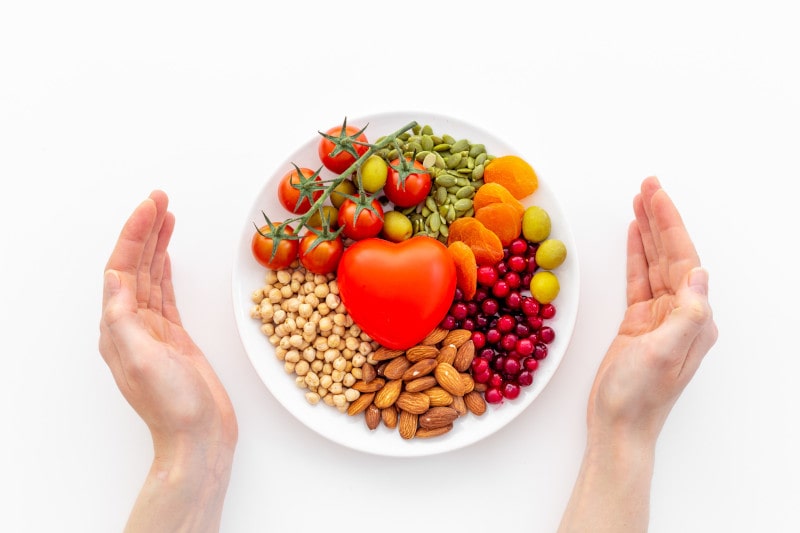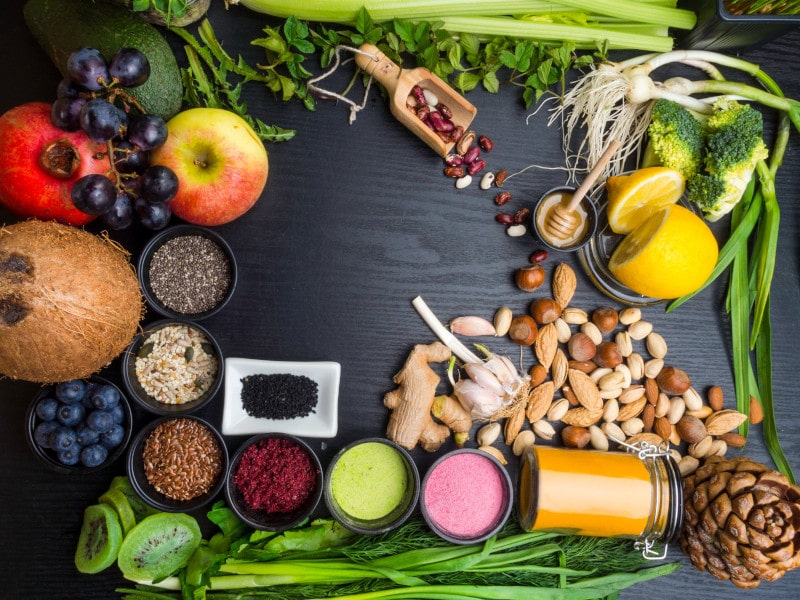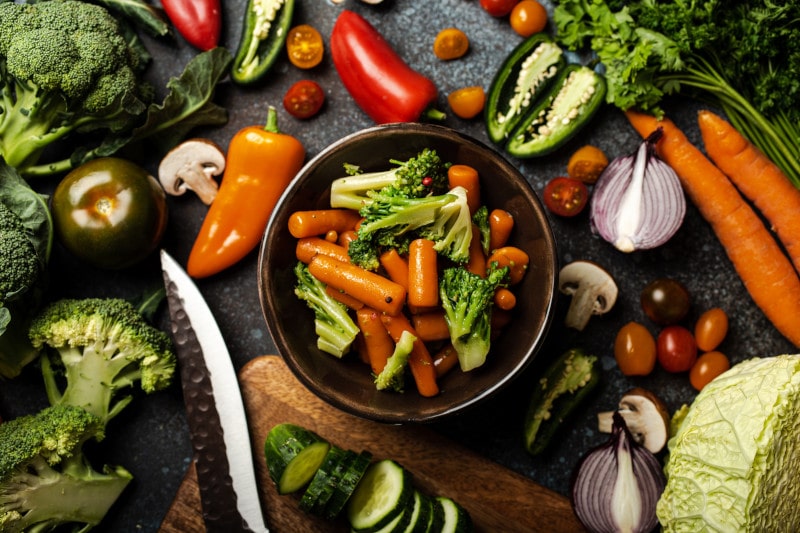If you’ve ever considered changing your diet to a healthier and more sustainable lifestyle, you’ve probably wondered how to start a vegetarian diet. This type of diet, centered on plant-based products such as fruits, vegetables, whole grains, legumes, nuts and seeds, not only provides great health benefits, but also benefits the environment and promotes overall well-being.
Others, however, choose this path out of concern about the environmental impact associated with excessive meat consumption, which leads to high levels of pollution, excessive use of resources such as water and deforestation.
Finally, for many, respect for animals and the desire to reduce their suffering are important motivations for adopting a plant-based diet.
The PlanEAT nutrition app helps you design a personalized vegetarian diet , tailored to your needs, food preferences and nutritional goals, ensuring variety and balance.
Content
Steps to start a vegetarian diet
1. Know the Types of Vegetarian Diets
4. Pay attention to essential nutrients
5. Explore new foods and recipes
6. Observe how your body responds
7. Surround yourself with support
Benefits of adopting a vegetarian diet
Steps to start a vegetarian diet
Eating a healthy vegetarian diet requires proper planning to avoid nutritional deficiencies. Therefore, it is essential to design a balanced and personalized eating plan, preferably with the help of a nutrition professional.
This step will ensure that excluding animal products does not compromise your health.

Interest in this type of diet has grown exponentially in recent years, and the reasons are varied. Many people seek to improve their health through a diet rich in vegetables, known to reduce the risk of chronic diseases and improve quality of life.
Although it may seem complicated at first, the popularity of vegetarian diets has made it easier to access information, recipes and resources that can make this transition easier and more enjoyable.
1. Know the Types of Vegetarian Diets
Before you begin, it is useful to understand the different variants of the vegetarian diet in order to choose the one that best suits your preferences and needs:
- Lacto-vegetarian : Includes dairy products, but eliminates meat, fish, and eggs.
- Ovo-vegetarian : Allows the consumption of eggs, but excludes dairy products, meat and fish.
- Lacto-ovo-vegetarian : Combines dairy and eggs, excluding meat and fish.
- Vegan : Avoid all animal products, including dairy, eggs, honey, and any foods derived from animals.
2. Make a gradual transition
Completely changing your eating habits overnight can be overwhelming, so it’s best to make the transition gradually:
- Start with one day a week without eating meat and gradually increase the days.
- Incorporate meat substitutes into your diet, such as tofu, tempeh or seitan.
3. Plan your meals in advance
Good planning will help you ensure a balanced diet. Some key nutrients to include are:
- Proteins : Combine legumes, cereals, nuts and seeds to obtain complete proteins.
- Complex carbohydrates : These include foods such as quinoa, oats, brown rice, and whole-wheat pasta.
- Healthy fats : Opt for avocado, nuts, olive oil and seeds like flax and chia.
- Fruits and vegetables : Make sure to include a wide variety to get different vitamins and antioxidants.
4. Pay attention to essential nutrients
Although a vegetarian diet can be healthy, there are certain nutrients that require special attention:
- Iron : Foods such as spinach, lentils and chickpeas are rich in iron. Pair them with sources of vitamin C to improve its absorption.
- Calcium : You can find it in foods like almonds, broccoli, fortified tofu, and fortified vegetable drinks.
- Vitamin B12 : It is essential to supplement it, since it is not found in plant foods.
- Omega-3 : Make sure to consume flax seeds, chia, walnuts or algae oils.
- Vitamin D : In addition to consuming fortified foods, make sure you get adequate sun exposure.
5. Explore new foods and recipes
One of the benefits of adopting a vegetarian diet is the opportunity to experiment with new flavors and cuisines. Cultures such as Indian, Mediterranean, and Asian offer a wide variety of vegetarian dishes that you can incorporate into your diet.
6. Observe how your body responds
Every body is different. If you notice changes in your energy level or any discomfort, it is important to review your diet to make sure you are getting all the nutrients you need.

7. Surround yourself with support
Joining vegetarian communities can be an invaluable source of advice, recipes and motivation.
8. Keep a flexible mindset
Don’t demand perfection from yourself. Allow yourself to adapt and learn along the way. This will make the experience more enjoyable and sustainable.
Benefits of adopting a vegetarian diet
If well planned, a vegetarian diet can transform your health and quality of life:
- Cardiovascular health : By eliminating saturated fats and cholesterol, you reduce LDL cholesterol levels and the risk of heart disease.
- Improves digestion : The high amount of fiber in fruits, vegetables and cereals favors digestion and prevents intestinal problems.
- Prevention of chronic diseases : Reduces the risk of type 2 diabetes and certain types of cancer thanks to its low glycemic index and the presence of antioxidants.
- Weight control : It is usually less caloric and more satiating, which facilitates weight loss or maintenance.
- Positive environmental impact : Contributes to reducing environmental damage associated with meat production.
- Animal Welfare : Promotes ethical feeding that reduces animal suffering.
Adopting a vegetarian diet is a decision that benefits both your health and the environment and animals. If you plan it properly and rely on professionals, you will be able to enjoy its many advantages without putting your well-being at risk.
The free nutrition app from PlanEAT is your perfect ally for creating healthy and easy diets , adapted to your needs, with personalized recipes and plans.

Start slowly, explore new foods and find in this change an opportunity to improve your quality of life.
The first step is in your hands!

